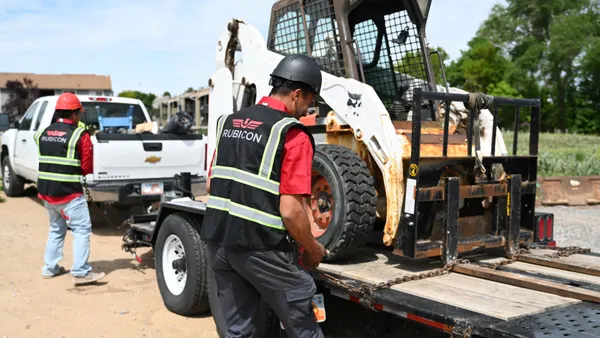The high-end hourly wage for a facilities technician is $36, according to the job-search platform Indeed. Even if your organization can’t afford to pay that, good leadership can still attract and retain talented technicians, says Bryan Decker, co-founder and CEO of the Rockwall, Texas-based consulting and facility management firm Compass Facilities. The company isn’t affiliated with foodservice and facilities management giant Compass Group USA.
The key is to get employees invested in the organization’s goals, show them how they’re a part of those goals, give them a voice in how things are done and make sure they have a path for professional growth, Decker said in a webcast hosted by maintenance management software company UpKeep.
“If you’re a small company, and you don’t have a bunch of paths for them to [grow], it’s important for them to know they’re part of the nexus of that company and, as it grows, they grow as well,” Decker said. “So, it’s important to understand what they want.”
When an employee decides to leave, if it’s just money that they’re looking for, there’s little you can do about that, Decker said. “Sometimes, it’s black and white,” he said.
But often money is a proxy for something else. “Have that real conversation,” he said. “Knowing why is hugely important; other people could be feeling the same way.”
Technicians quit far more frequently because of their boss than because of the pay or the broader organization, said Decker, who started Compass in 2023 after 15 years as a technician in other organizations, including Facebook parent company Meta. “People quit bosses, not companies,” he said.
It’s not unusual for technicians who advance into a leadership role to assume it’s their job to figure out solutions to problems and then impose that decision on the technicians who work for them, he said. “They’re like, ‘Alright, I’ve arrived, and I’ve got all the answers,’” he said.
But that can demoralize the team, Decker said. The people reporting to that manager “were hired into this position to bring their skills to bear, and they’re not being allowed to use those skills,” he said. “Ensure that doesn’t become part of your culture.”
New leaders would benefit from formal leadership training and mentoring because the best leaders recognize it’s not about them, he said, it’s about setting up their team for success.
“Once you move from an individual contributor to a leader, it’s all about how you’re removing roadblocks for each person on your team and enabling their success,” he said. “It’s not about you at all. That’s a core tenet of leadership.”
Making people feel invested in what they’re doing starts with leaders articulating the organization’s goals and then showing each technician the role they’re playing in reaching the goals.
“Back when [the United States] was in the race to put a person on the moon, JFK was walking through the NASA space center and stopped to talk to a janitor,” said Decker, illustrating his point with a widely shared story from John F. Kennedy’s presidency in the early 1960s. “He asked the janitor, ‘Hey, what do you do here?’ and the janitor said, ‘We’re putting someone on the moon, sir.’” That’s exactly what we want to see. The janitor was part of that team that was going to make that happen and he recognized that. That’s due to great communication.”
Higher-level technician jobs, like engineering technologists and technicians, can earn as much as $109,000, according to Bureau of Labor Statistics data shared on the webcast. That’s not affordable for many small and midsized organizations, Ollie Whitfield, who does marketing for UpKeep, said on the webcast.
But the same leadership rules apply to these more senior people, Decker said. “You wish you could pay all these folks more,” he said. “But I’m going to give you growth opportunities from the get-go. I see you doing [these great things]. I want to partner with you to make sure you hit your targets. That’s a way to keep folks, even if your pay is lower than some of the larger companies. Invest in that person.”














